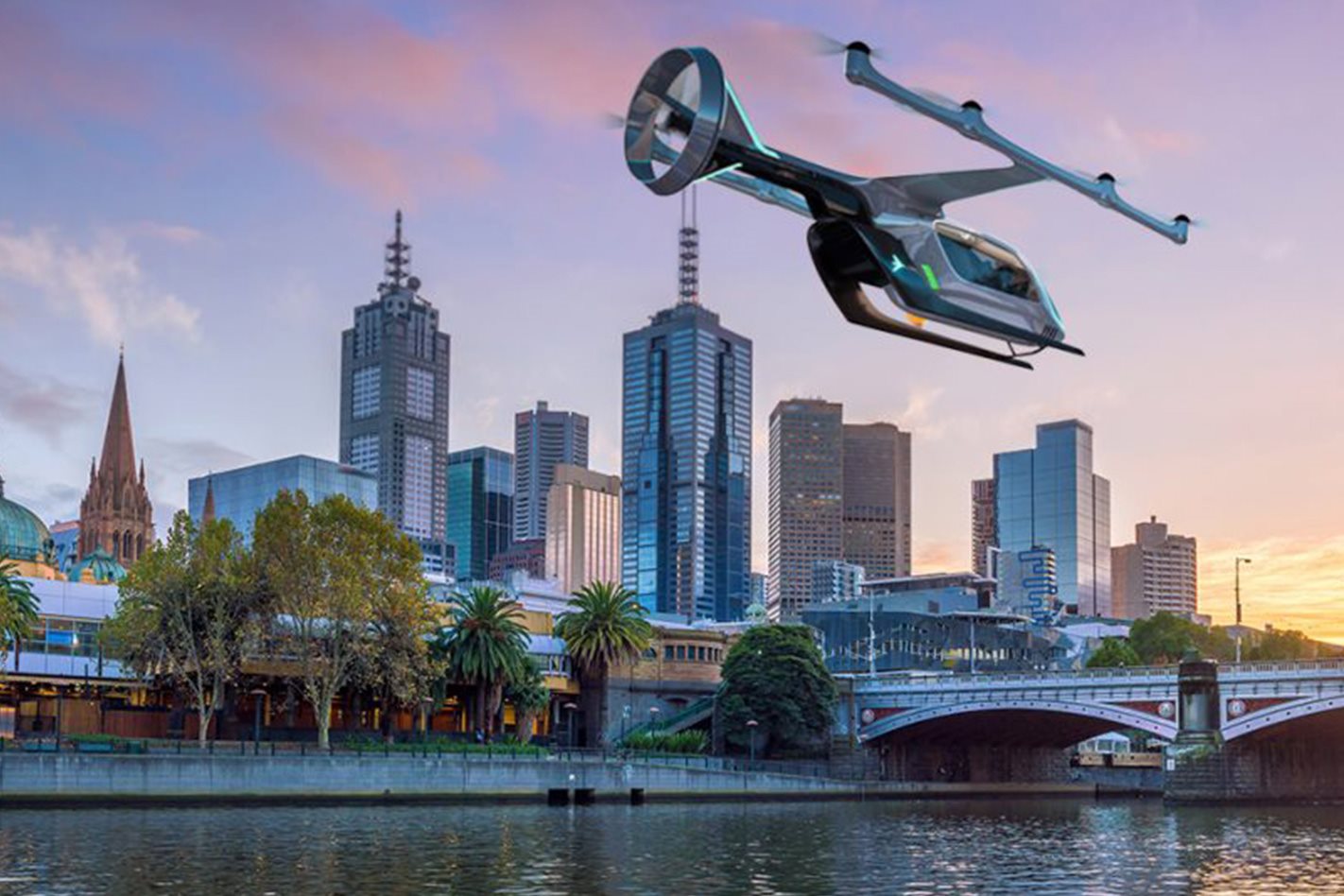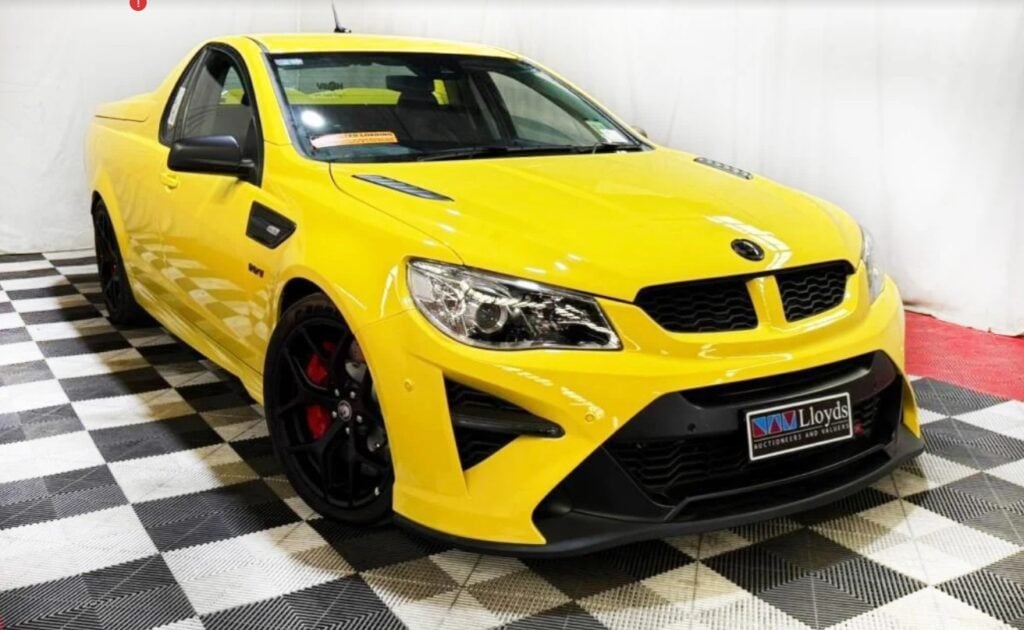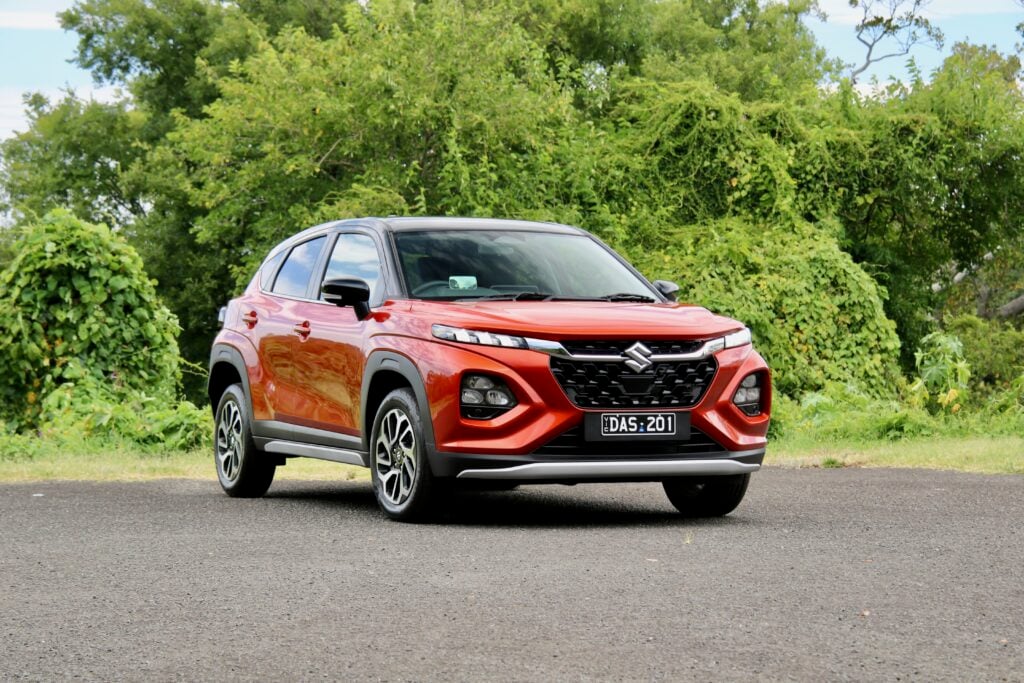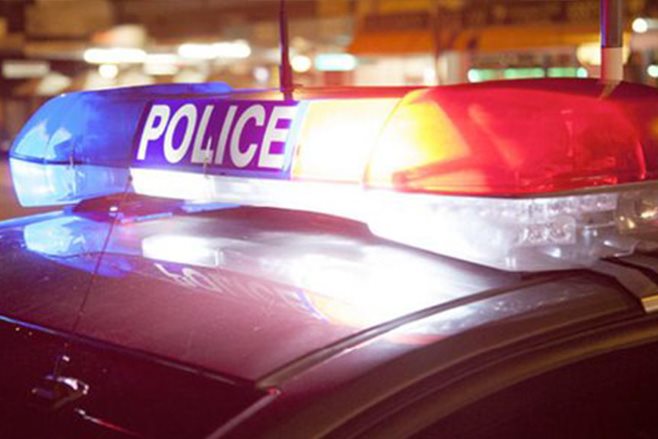Melbournians will soon be able to fly from a shopping centre to the airport in minutes with the introduction of Uber Air.
The newest ridesharing innovation from US start-up Uber, Melbourne becomes the first city outside of the US to begin trials before full-service availability to the public by 2023.
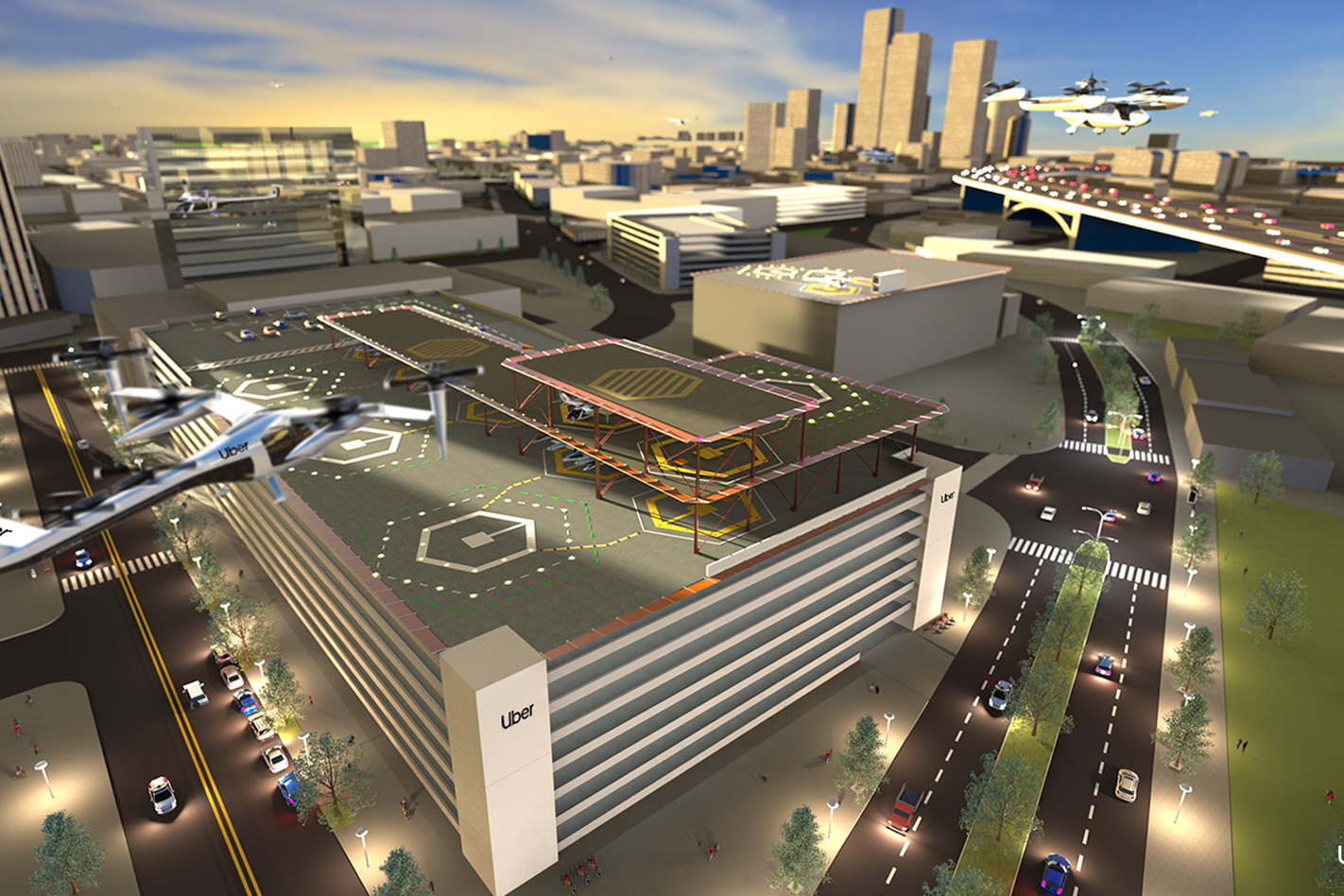
Los Angeles and Dallas are the only other two cities in the world to begin testing the ‘electric vertical takeoff’ ridesharing air taxis, and Uber says it plans to begin trials of the service in Melbourne as early as 2020, three year before full commercial operations commence.
And this is not some whimsical announcement; it has the full support of the Australian government. The US tech company has also partnered with Telstra for its 5g data infrastructure, along with Scentre Group (owner and operator of Westfield shopping centres), Melbourne Airport, and Macquarie Capital which will help rollout an electric charging network and ‘Skyport’ landing infrastructure to be dotted around the southern city.
“As the gateway to Melbourne for tens of millions of travelers each year, we can see fantastic potential for Uber Air in the future,” said Melbourne Airport chief of parking and ground access, Lorie Argus.
“We look forward to continuing this exciting conversation, and working with government, regulators and our local communities to make this happen.”
Though it feels as if Melbournites are being prematurely thrust into a sci-fi future, ordering an Uber Air will be as easy as opening the Uber app on a phone, and the cost will be about the same as an UberX car.
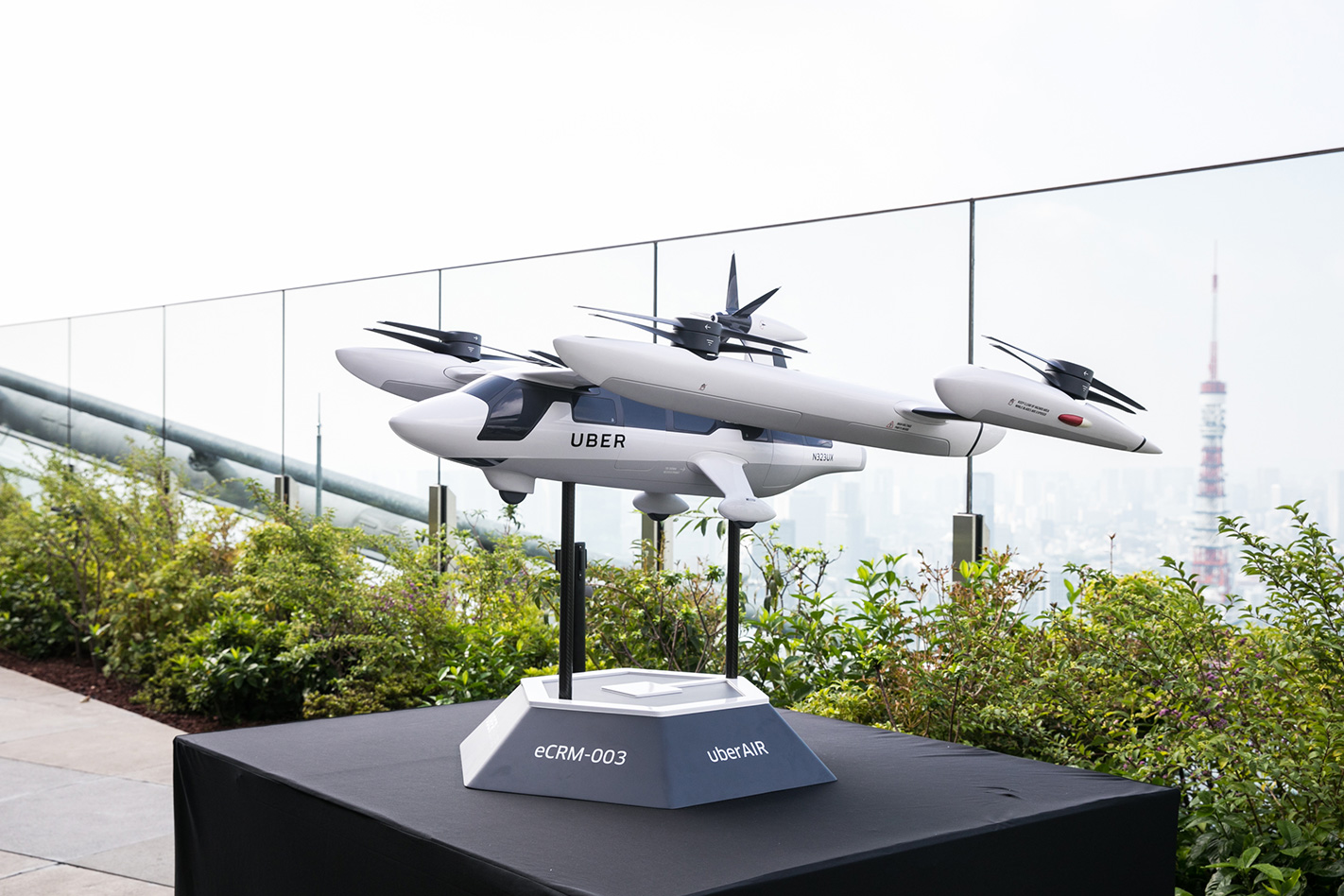
By way of comparison, an UberX from Southern Cross train station in Melbourne’s CBD to Melbourne international airport costs a little under $40 at time of writing.
“The 19km journey from the CBD to Melbourne airport can take anywhere from 25 minutes to around an hour by car in peak hour, but with Uber Air this will take around 10 minutes,” said Uber spokesman Eric Allison.
“Uber’s technology is changing the way people move around their cities — from bikes to pooled rides, we are always looking for ways to reduce the need for private car ownership. In the coming years, with Uber Air, we want to make it possible for people to push a button and get a flight.”
Uber made the announcement today at its Uber Elevate (Uber Air) Summit in Washington, USA. Attending the event is Assistant Treasurer, Government of Victoria, Robin Scott who pledged his support for the aerial ridesharing service.
“We are delighted that Melbourne has been chosen as the first international trial city for Uber Air. Victoria is a dynamic, innovative tech state and an economy leading the Asia Pacific region in transformative technologies,” he said.
Regional general manager for Uber Australia, New Zealand and North Asia, Susan Anderson, added that Uber was drawn to Australia because of the government’s support for ridesharing and future technologies.
“Australian governments have adopted a forward-looking approach to ride-sharing and future transport technology,” said Anderson.
“This, coupled with Melbourne’s unique demographic and geospatial factors and culture of innovation and technology, makes Melbourne the perfect third launch city for Uber Air. We will see other Australian cities following soon after.
“Since we entered the market in 2012, Australians have embraced Uber wholeheartedly. Today, over 3.8 million Aussies regularly use Uber as a reliable way to get from A to B, and governments across the country have recognised the important role ridesharing plays in the future of transport for our cities.”
Uber suggests that the service will reduce congestion and is an ecologically friendly method of transport, given its air vehicles are electric and able to charge from renewable energy sources. The craft are also quieter than conventional fossil-fueled helicopters, though there are questions on how Uber plans to begin the trials as early as next year in Australia.
Its program has the support of partners including Boeing subsidiary Aurora Flight Sciences, EmbraerX, Pipistrel Vertical Solutions and Bell.

